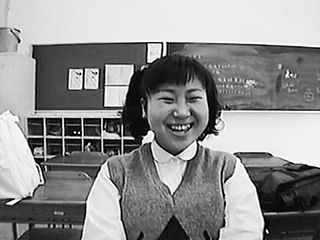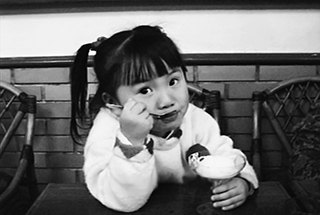Juror
Yang Yonghi
[Juror’s Statement]
I’ve always said, “Documentary filmmakers are scumbags.”
These are people who perpetrate the violent acts of intruding on other peoples’ lives, robbing them and exposing their privacy by treating the words of those who agree to be filmed as if it was dialogue existing for the purpose of their work—based on the excuse that they are documentary filmmakers. A documentary film festival, in which films created in this way are gathered, viewed, discussed, and evaluated, is without question an entirely crazy event.
Precisely because of my awareness that I am one of these scumbags and self-assured perpetrators of violence under the guise of “filmmaking,” I plan to sit on the edge of my seat on the lookout for filmmakers who have built trust with their subjects despite the constant risk, and sublimated it into stunning works of art.
Although technology has diversified production processes and screening methods (streaming, broadcasting), it is films that gather here. And it is important that they should be films, because this is a film festival.
Faced with works into which immeasurable time and energy have been invested, I will surely continue to ask myself, “What is a film? What is a documentary film?” I believe that the questions and answers of the judges will collide and merge, and we will be able to find new lights to guide us that can only be found at YIDFF 2023.
I want to celebrate the arrival of new films, encounters with people who love documentary films, and above all, the happiness of being able to encounter the lives of various people around the world on the screens of the Yamagata International Documentary Film Festival.
Born in Osaka, Yang Yonghi received her MA in media studies from The New School, New York. After working as a high school teacher, in theater production, and as a radio personality, she went on to produce TV news programs. Dear Pyongyang (2005, YIDFF 2005), her debut film about her family with her father as the main character, won many awards, including at the Berlin International Film Festival and the Sundance Film Festival. Her first fiction film, Our Homeland (2012), again won many accolades, including the CICAE Award at the Berlin International Film Festival and the Yomiuri Literature Award in the Drama-Scenario category. Soup and Ideology (2021, YIDFF 2021) won the grand prize at the DMZ International Documentary Film Festival and was awarded in the Mainichi Film Competition. Her non-fiction book Our Homeland— Brother, novel Chosen Daigakko Monogatari (Korea University Story) and book of essays, Turning off the Camera, I Write, have been published in Japan and South Korea. She is currently writing a new script.
The Swaying Spirit
(Yureru kokoro)- JAPAN / 1996 / Japanese / Color / DCP / 30 min
 Director, Photography, Narration, Planning: Yang Yonghi
Director, Photography, Narration, Planning: Yang Yonghi
Post Production: NHK Osaka Broadcasting Station, Yang Yonghi
Source: PLACE TO BE
Interviewing Korean residents of Japan attending public high schools in Japan, this is a record of young people who waver between their identity, their Japanese name (tsuumei, or the name used in society), and their real name. In advance of high school graduation, one schoolgirl declares her real name for the first time in front of her entire school. But it doesn’t serve to firm her resolve.
Sona, The Other Myself (Digitally remastered version)
- KOREA, JAPAN / 2009 / Korean, Japanese / Color / DCP / 82 min
 Director, Script, Photography, Narration: Yang Yonghi
Director, Script, Photography, Narration: Yang Yonghi
Editing: Baekho JJ
Producer: Arai Kaoru
Production Companies, Source: PLACE TO BE, Yang Yonghi
World Sales: M-LINE Distribution
An intimate portrayal of deep ties between families living apart in two countries that are both near and far from one another. We see the daily lives of the families of the director’s brothers, repatriated to North Korea, and in particular that of Sona, the director’s niece—daughter of her second eldest brother.
